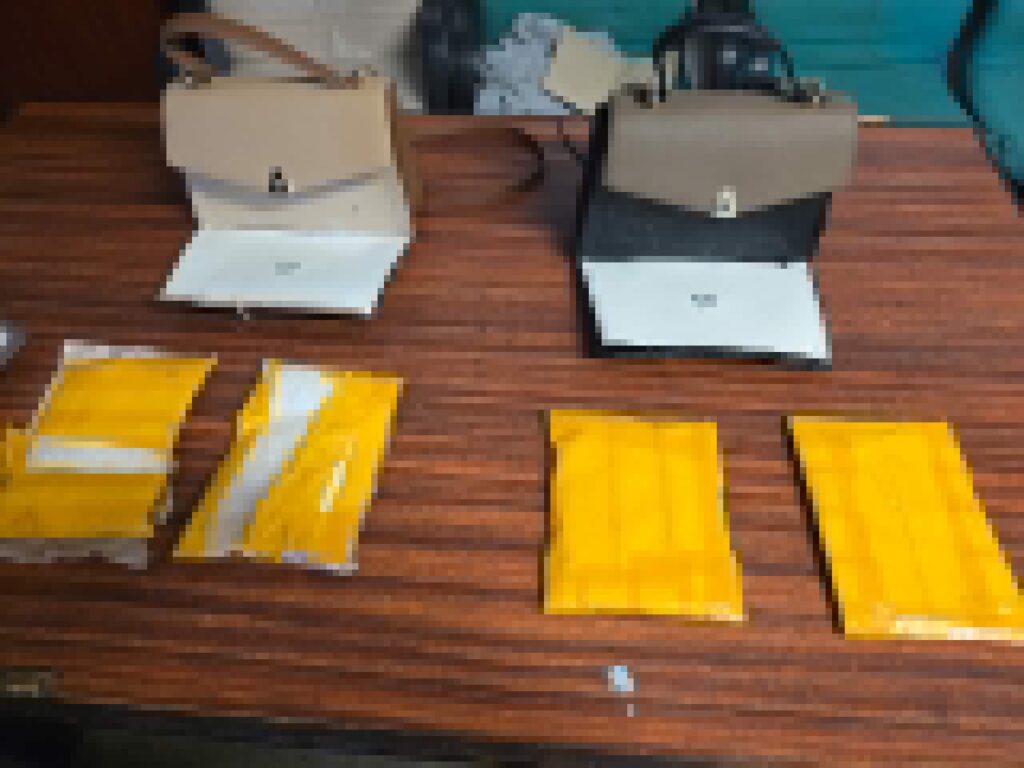A 25-year-old Kenyan woman, Caroline Wanjiku Mwangi, was recently arrested at Jomo Kenyatta International Airport (JKIA) while trying to board a flight to Goa, India, with 1.3 kilograms of cocaine concealed in her luggage. The drugs were hidden in two handbags and wrapped in yellow cellotape. She was intercepted by officers from the Anti-Narcotics Unit during a routine security check and is currently being held at the JKIA Police Station as she awaits arraignment.
The cocaine, now secured as evidence, has become a key part of the case, which is being processed under Kenya’s strict drug trafficking laws. This arrest appears to be part of a trend where young Kenyan women are increasingly being used as drug mules by international trafficking networks. Many of them, often lured by promises of quick money, end up facing serious consequences when caught either in Kenya or in other countries with even harsher penalties.

Just recently, another Kenyan woman, Margaret Nduta, was sentenced to death in Vietnam for trafficking two kilograms of cocaine. These incidents suggest that drug syndicates are actively targeting vulnerable individuals, exploiting poverty and desperation for their operations.

Kenya’s airports, especially JKIA, have become notable transit points for narcotics headed to Europe and Asia. Due to its strategic location, JKIA offers traffickers access to major international flight routes, which explains the continued efforts by authorities to tighten security. The Anti-Narcotics Unit has intensified its surveillance operations, using improved detection methods and collaborating with international partners. However, as this latest case shows, traffickers continue to find ways to bypass security measures, often using unsuspecting individuals to carry out their activities.
Research by local media and analysts has shown that these couriers are sometimes paid as little as Sh167,000 to carry high-risk cargo. Once caught, they face charges under the Narcotic Drugs and Psychotropic Substances (Control) Act, which can lead to long prison terms or life sentences.

While some cases involve internal conspiracies with airport or airline staff in other countries, in Kenya, the authorities have been making visible efforts to address the problem through both legal reform and enforcement.
With international cooperation increasing and Kenyan authorities determined to dismantle these networks, individuals caught in possession of drugs are now more likely than ever to face serious legal consequences.





















Add Comment